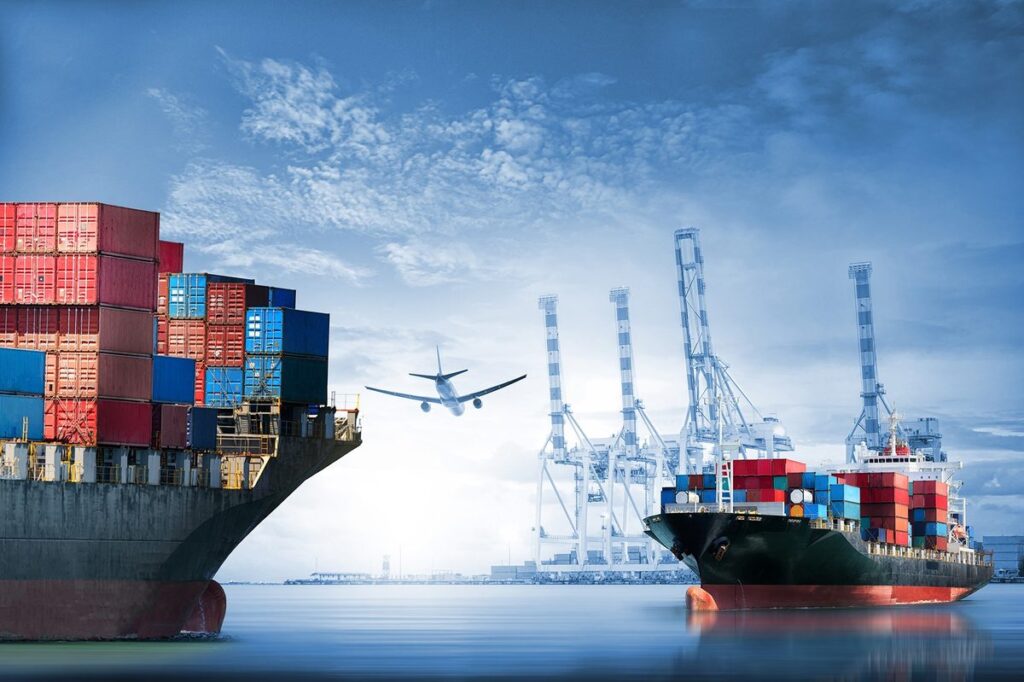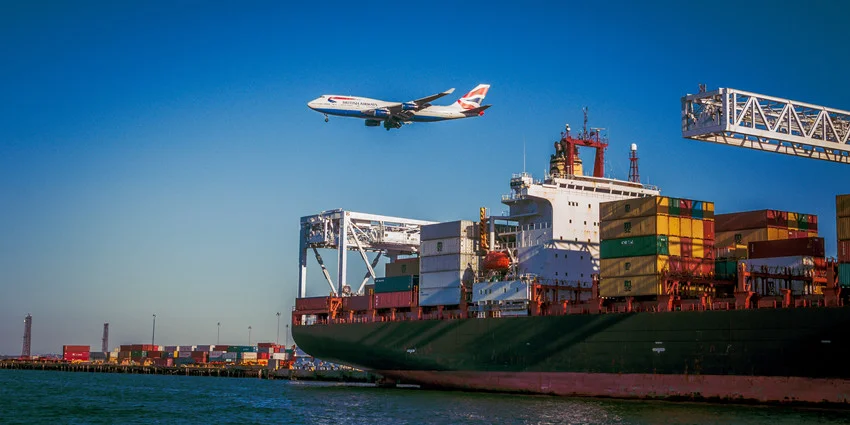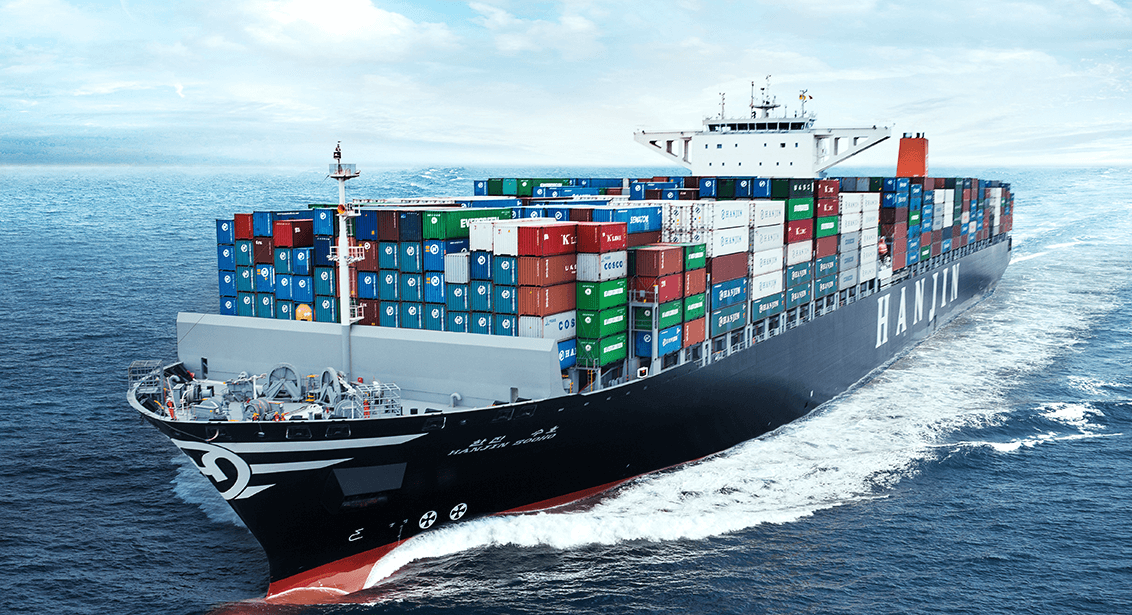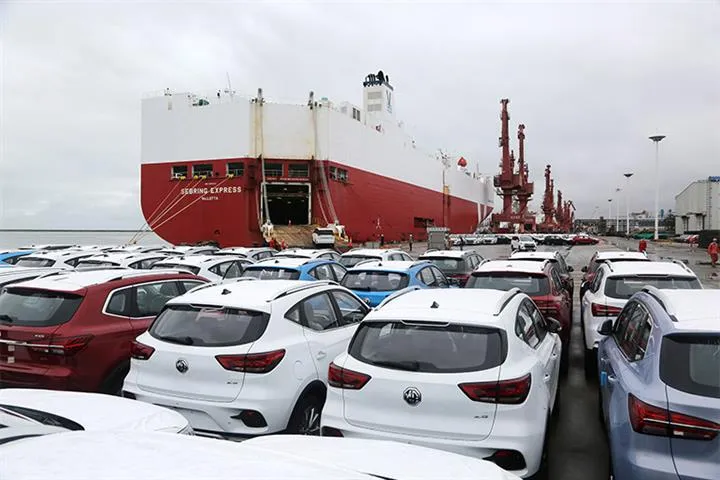In the rapidly evolving world of international trade, Door-to-Door Shipping has emerged as a preferred logistics solution for businesses seeking efficiency and convenience. This comprehensive service takes the hassle out of the shipping process by managing every aspect from pickup at the seller’s location to delivery at the buyer’s doorstep. Whether you are a small business importing goods from China to Iran or a large corporation navigating the complexities of global logistics, understanding the essentials of door-to-door shipping can help streamline your operations and enhance customer satisfaction. In this guide, we will explore the various shipping methods available, the factors influencing shipping costs, customs clearance procedures, and tips for ensuring a smooth shipping experience.

Understanding Door-to-Door Shipping
Door-to-Door Shipping refers to a logistics service where goods are transported directly from the seller’s location to the buyer’s specified address, eliminating the need for the recipient to handle any intermediary steps. This method encompasses all aspects of the shipping process, including pickup, transportation, customs clearance, and final delivery. The primary benefit is the convenience it offers to both sellers and buyers, as they do not need to worry about arranging transportation or navigating the complexities of international shipping themselves.
Key Features of Door-to-Door Shipping
- Convenience: The service manages all logistics, providing a seamless experience for customers.
- Tracking and Communication: Most door-to-door services include tracking features, allowing customers to monitor their shipment in real-time and receive updates throughout the process.
- Customs Clearance: Service providers handle customs documentation and clearance, minimizing delays and ensuring compliance with regulatory requirements.
For businesses importing goods from countries like China, opting for Door-to-Door Shipping can significantly reduce effort and time spent managing logistics, allowing them to focus on core business activities.
Why Choose Door-to-Door Shipping?
Choosing Door-to-Door Shipping offers several compelling advantages for businesses and individuals looking to import goods internationally:
- Time Efficiency: The streamlined process ensures that shipments are delivered promptly without the need for the buyer to engage in multiple transportation arrangements.
- Cost-Effectiveness: Although it may initially seem more expensive than other shipping methods, the elimination of hidden costs associated with customs handling and transportation can lead to overall savings.
- Risk Reduction: By entrusting logistics to a professional freight forwarder, the risks associated with miscommunication and errors are minimized. This is particularly critical when dealing with customs regulations and documentation.
- Flexibility: Various door-to-door shipping options are available, accommodating different shipment sizes and delivery speeds, thereby allowing customers to select a service that best meets their needs.
- Customer Satisfaction: Providing a hassle-free delivery experience can enhance the overall customer experience, fostering long-term relationships and repeat business.
You may be interested in the following related articles:
- Ultimate Guide to Door-to-Door Shipping from China to Algeria
- The Ultimate Guide to Efficient Door-to-Door Shipping from China to Egypt
- Ultimate Guide to Door-to-Door Shipping from China to France
- Comprehensive Guide to Door-to-Door Shipping to Italy in 2024
- Ultimate Guide to Door-to-Door Shipping to Germany
- Door-to-Door Freight Shipping from China to UK
Shipping Methods from China to Iran

When it comes to shipping goods from China to Iran, businesses can leverage several methods of Door-to-Door Shipping. Understanding the pros and cons of each can help businesses make informed decisions based on their specific requirements.
Express Shipping Door to Door
Express Shipping is the fastest method for delivering goods internationally. It is particularly beneficial for time-sensitive shipments, such as urgent documents or high-demand products.
Advantages:
- Speed: Delivery times can range from 1 to 3 days, depending on the destination within Iran.
- Reliable Tracking: Customers receive real-time updates on their shipments, enhancing transparency and trust.
- Door-to-Door Convenience: The express service will handle all logistics, ensuring packages are delivered directly to the designated address.
Disadvantages:
- Higher Cost: Express shipping is usually significantly more expensive than other methods, making it less suitable for bulk shipments or low-value goods.
Air Freight Door to Door
Air Freight offers a balance between speed and cost, making it a popular choice for many businesses importing from China to Iran. This method is ideal for medium-sized shipments that require timely delivery without the express shipping price tag.
Advantages:
- Faster than Sea Freight: Air freight generally takes 7 to 10 days for delivery, making it a good option for businesses that need to receive goods quickly.
- Lower Risks of Damage: Air transport tends to have lower handling frequencies, reducing the chances of damage during transit.
Disadvantages:
- Weight Limitations: Air freight costs increase with weight, making it less economical for heavy shipments compared to sea freight.
- Limited Cargo Capacity: Not all goods are suitable for air transport, as certain items may be restricted due to air cargo regulations.
Sea Freight Door to Door
Sea Freight is one of the most cost-effective methods for transporting large volumes of goods. It is the preferred choice for businesses looking to ship bulk items or non-urgent products.
Advantages:
- Cost-Effective for Bulk Shipments: Sea freight rates are significantly lower than air freight, especially for large shipments.
- Capability for Larger Cargo: Shipping containers can accommodate a wide range of products, including oversized items.
Disadvantages:
- Longer Transit Times: Delivery can take anywhere from 20 to 45 days depending on shipping routes and port congestion, making it unsuitable for time-sensitive shipments.
- Limited Tracking: While some providers offer tracking, it may not be as comprehensive as air freight options.
| Shipping Method | Average Delivery Time | Cost Efficiency | Best For |
|---|---|---|---|
| Express Shipping | 1-3 days | High | Urgent, small shipments |
| Air Freight | 7-10 days | Medium | Medium-sized, time-sensitive shipments |
| Sea Freight | 20-45 days | Low | Bulk shipments |
When considering the best shipping method from China to Iran, businesses should evaluate their specific needs, including the urgency of delivery, shipment size, and overall cost.
For those looking for a reliable partner in international logistics, consider Dantful International Logistics. With services like Door-to-Door Shipping, Customs Clearance, and Insurance Services, Dantful offers a Highly Professional, Cost-effective, and High-quality, One-Stop International Logistics Service Provider for global traders. Take the hassle out of shipping and let Dantful manage your logistics needs today.
Shipping From China to Middle East Countries:
- Shipping from China to Saudi Arabia
- Shipping from China to UAE
- Shipping from china to KUWAIT
- Shipping From China To EGYPT
- Shipping from China to Bahrain
- Shipping From China To Jordan
- Shipping From China To Israel
- Shipping from China to Qatar
- Shipping From China To IRAQ
- Shipping from China to Iran
Cost of Door-to-Door Shipping from China to Iran
Understanding the financial implications of Door-to-Door Shipping is crucial for businesses looking to import goods from China to Iran. Various factors influence shipping costs, making it essential to evaluate these elements carefully.
Factors Affecting Shipping Costs
Several key factors impact the cost of Door-to-Door Shipping from China to Iran:
- Shipping Method: Different methods (express, air freight, sea freight) have varying costs associated with speed and capacity. Express shipping tends to be the most expensive due to its speed, while sea freight is generally more cost-effective for bulk shipments.
- Weight and Dimensions: The weight and size of the shipment significantly affect costs. Most carriers charge based on either the actual weight or the dimensional weight (volumetric weight), whichever is greater. Understanding how these calculations work can help businesses strategize their packaging to minimize costs.
- Distance: The shipping distance from the origin in China to the destination in Iran affects fuel costs, time, and potential handling fees. Longer distances typically incur higher charges.
- Customs Duties and Taxes: All imports to Iran are subject to customs duties, tariffs, and other taxes that can add to the total shipping cost. Having a reliable freight forwarder can help navigate these complexities and provide accurate estimates.
- Insurance: While optional, shipping insurance is often recommended to protect against potential loss or damage during transit. The cost of insurance varies based on the shipment’s value and the type of goods being transported.
- Fuel Prices: Fluctuations in fuel prices can impact overall shipping costs. Carriers adjust their rates in response to changes in fuel prices, which can affect the final invoice.
Cost Comparison by Shipping Method
The table below illustrates a general comparison of costs associated with different shipping methods from China to Iran. Note that these figures are estimates and can vary based on specific circumstances.
| Shipping Method | Estimated Cost (per kg) | Typical Use Case |
|---|---|---|
| Express Shipping | $20 – $30 | Urgent, high-value, or time-sensitive items |
| Air Freight | $8 – $12 | Medium-sized shipments requiring faster delivery |
| Sea Freight | $2 – $5 | Large bulk shipments with flexible delivery times |
The above costs are indicative and may vary based on the specific service provider, current market conditions, and additional services included.
Shipping Times in Door-to-Door Shipping
The shipping times associated with Door-to-Door Shipping can significantly influence business decisions. Different shipping methods offer varying delivery speeds, and understanding these timelines is essential for effective planning.
Estimated Durations for Different Shipping Methods
| Shipping Method | Estimated Delivery Time | Best Suited For |
|---|---|---|
| Express Shipping | 1 – 3 days | Urgent, small packages |
| Air Freight | 7 – 10 days | Medium-sized shipments |
| Sea Freight | 20 – 45 days | Bulk shipments and non-urgent deliveries |
The choice of shipping method will often depend on the urgency of the shipment, the dimensions and weight of the goods, and budget considerations.
Factors That Can Affect Delivery Times
- Customs Clearance: Delays in customs can significantly impact overall delivery times. Proper documentation and compliance can expedite this process.
- Weather Conditions: Adverse weather can lead to delays in air and sea freight. Seasonal variations can affect shipping schedules, particularly in winter and monsoon seasons.
- Port Congestion: Busy ports can experience delays, affecting sea freight delivery times. It’s essential to consider potential congestion at the ports of departure and arrival.
- Holidays and Peak Seasons: Shipping times can be extended during holidays or peak seasons such as Chinese New Year and Ramadan, where both labor availability and demand increase.
- Carrier Reliability: The choice of service provider plays a crucial role. Reliable logistics companies like Dantful International Logistics often have established networks and relationships that can enhance delivery efficiency.
Choosing the right shipping method and understanding the factors affecting costs and delivery times are essential for businesses making imports from China to Iran. For a comprehensive solution to your shipping needs, consider partnering with Dantful, a Highly Professional, Cost-effective, and High-quality logistics service provider that offers tailored services to meet your international shipping requirements.
Customs Clearance and Duties
Navigating the complexities of Customs Clearance and understanding the associated Duties are critical steps for businesses importing goods from China to Iran. This section provides an overview of customs procedures and the financial obligations that come with importing.
Customs Procedures in Iran
The customs clearance process in Iran involves several steps to ensure compliance with local laws and regulations. Understanding these procedures can help businesses avoid delays and unforeseen expenses during the importation process.
- Documentation Preparation: Prior to shipping, it’s essential to prepare all necessary documentation, including:
- Commercial Invoice: A detailed list of goods being shipped, including values and descriptions.
- Packing List: An itemized list detailing how the shipment is packed.
- Bill of Lading: A shipping document that provides details about the goods and serves as a receipt.
- Import License: Certain goods may require an import license issued by the Iranian authorities.
- Customs Declaration: Upon arrival of the goods in Iran, a customs declaration must be submitted. This includes providing all relevant documents to the customs authorities for review and approval. Any discrepancies may lead to delays or additional inspections.
- Duties and Taxes Assessment: Customs officials will assess the duties and taxes applicable to the imported goods. This assessment is based on the Customs Tariff and can vary significantly depending on the type of product being imported.
- Inspection: In some cases, customs authorities may conduct a physical inspection of the shipment to verify the contents against the provided documentation. This step is particularly common for items that are sensitive or have complex regulations.
- Release of Goods: Once all documents are approved, and duties are paid, the goods will be released for delivery to the specified address. This process can take several days, depending on the efficiency of the customs office and the nature of the shipment.
For businesses seeking to streamline the customs clearance process, partnering with a reliable freight forwarder like Dantful International Logistics can significantly enhance efficiency and compliance.
Import Duties and Taxes
When importing goods into Iran, various duties and taxes apply, which can influence the total cost of goods significantly.
- Customs Duties: These are tariffs imposed on imported goods based on their classification under the Iran Customs Tariff. The rates can fluctuate based on trade agreements and changes in government policy. Duties typically range from 0% to 100%, depending on the product category.
- Value Added Tax (VAT): In addition to customs duties, Iran imposes a Value Added Tax (VAT) on imported goods, usually set at 9%. This tax is applied to the total cost of goods, including customs duties.
- Additional Charges: Other charges may include:
- Service Fees: Fees charged by customs brokers or agents to facilitate the clearance process.
- Excise Taxes: Applicable on certain goods like alcohol and tobacco.
- Special Import Taxes: May apply to specific products deemed luxury items or non-essential.
Understanding these costs is crucial for budgeting and pricing strategies. Businesses should factor in these duties and taxes when calculating the overall cost of importing goods to ensure profitability.
Insurance and Tracking
Insurance and tracking services are vital components of the logistics process. They provide peace of mind and ensure transparency throughout the shipping journey.
Cargo Insurance
Cargo insurance protects the financial investment in goods during transit. This insurance is crucial for businesses importing goods, as it mitigates the risks associated with loss, damage, or theft.
- Types of Cargo Insurance:
- All-Risk Coverage: This provides the most comprehensive protection, covering all risks of loss or damage except those specifically excluded.
- Named Perils Coverage: This policy covers only the risks explicitly mentioned within the policy, such as fire, theft, or collision.
- Importance of Cargo Insurance:
- Financial Protection: In the event of damage or loss, having cargo insurance ensures that a business can recover its financial investment.
- Risk Management: It helps in managing and mitigating risks associated with the shipping process.
- Peace of Mind: Businesses can operate with confidence, knowing that their goods are protected during transit.
- How to Obtain Cargo Insurance:
- Insurance can be purchased through a freight forwarder, insurance company, or specialized logistics provider. It is essential to understand the coverage details and exclusions before purchasing a policy.
For businesses looking for reliable cargo insurance, Dantful offers tailored solutions that provide comprehensive coverage for a wide range of goods.
Tracking Your Shipment
Tracking shipments is essential for maintaining transparency and ensuring timely delivery. Most logistics providers offer tracking services that allow businesses to monitor their shipments in real-time.
- Tracking Systems:
- Online Tracking: Most freight forwarders provide online portals where customers can enter their tracking number to see the status of their shipment.
- Mobile Applications: Some logistics companies offer mobile apps that provide real-time updates and notifications regarding shipment status.
- Benefits of Shipment Tracking:
- Enhanced Communication: Businesses can keep their clients informed about the status of their orders, enhancing customer satisfaction.
- Proactive Problem Resolution: Tracking allows businesses to identify potential delays early on, enabling them to take proactive measures to address issues.
- Inventory Management: Real-time tracking helps businesses manage inventory levels more effectively by aligning shipment arrivals with demand.
- Integration with Supply Chain Management: Advanced tracking solutions can be integrated into a business’s supply chain management system, providing a holistic view of inventory and shipment statuses.
Incorporating insurance and tracking into the shipping process enhances the overall efficiency and reliability of logistics operations. For a comprehensive logistics solution, Dantful International Logistics provides both Insurance Services and advanced shipment tracking features to support your business needs.
Choosing the Right Shipping Partner
Selecting a reliable shipping partner is a crucial step for businesses looking to import goods from China to Iran. The right partner ensures not only the safe and timely delivery of goods but also enhances overall operational efficiency.
Evaluating Shipping Companies
When evaluating potential shipping companies, several criteria should be considered to ensure that the chosen provider aligns with your business needs:
- Experience and Expertise: Look for companies with a proven track record in international shipping, particularly with routes between China and Iran. Experienced providers are more likely to anticipate and mitigate potential issues.
- Service Range: Assess the variety of services offered, including Door-to-Door Shipping, customs clearance, and warehousing. A comprehensive service provider, like Dantful International Logistics, can streamline logistics and reduce the need for multiple vendors.
- Reputation and Reviews: Research customer reviews and testimonials. A reputable company should have positive feedback regarding their reliability, communication, and overall service quality. Utilize platforms like Trustpilot or Google Reviews to gather insights.
- Transparency in Pricing: Ensure that the company provides clear and detailed pricing structures, including all potential fees such as customs duties, handling fees, and insurance. A reliable shipping partner will be upfront about costs and will not surprise you with hidden charges.
- Technology and Tracking Capabilities: Evaluate the technology used by the shipping provider. Modern logistics companies offer tracking systems that allow customers to monitor their shipments in real-time. This capability enhances transparency and helps in managing expectations.
- Customer Support: A strong customer support system is vital for addressing any issues or queries that may arise during the shipping process. Ensure the company provides responsive and knowledgeable support staff.
- Compliance with Regulations: Confirm that the shipping partner is well-versed in the customs regulations and requirements for importing goods into Iran. This knowledge is crucial for avoiding delays and ensuring compliance.
Dantful Door-to-Door Service
Dantful International Logistics stands out as a highly professional and cost-effective logistics provider for global traders. Our Door-to-Door Shipping service offers several advantages:
- Comprehensive Logistics Solution: Dantful manages every aspect of the shipping process, from pickup in China to final delivery in Iran, minimizing logistical challenges for the customer.
- Expert Customs Clearance: Dantful’s team is experienced in navigating the complexities of customs regulations, ensuring that all necessary documentation is handled correctly and efficiently.
- Real-Time Tracking: Customers benefit from Dantful’s advanced tracking system, allowing them to monitor their shipments at any time, which enhances transparency and trust.
- Flexible Service Options: Understanding that each business has unique needs, Dantful offers various shipping methods tailored to different time frames and budgets, enabling businesses to choose the most suitable option.
- Insurance Services: Dantful provides comprehensive Insurance Services to protect shipments against loss or damage during transit, giving customers peace of mind.
By partnering with Dantful, businesses gain access to an efficient, reliable, and professional shipping service designed to meet their specific requirements.
Dantful International Logistics Services:
- Dantful Ocean Freight Services
- Air Freight From China
- Amazon FBA Freight Forwarding
- WAREHOUSE Services
- One-Stop Customs Clearance Solution
- Cargo Insurance Services in China
- DDP Shipping Services By Dantful Logistics
- Out of Gauge Cargo Transportation Shipping Services
Tips for a Smooth Shipping Experience
Ensuring a smooth shipping experience requires careful planning and management at every stage of the logistics process. Here are some essential tips for businesses importing goods from China to Iran.
Pre-Shipment Planning
- Understand Your Requirements: Clearly define your shipping needs, including the types of goods being shipped, specific delivery timelines, and budget constraints. This information will guide your choice of shipping method and provider.
- Select the Right Shipping Partner: Conduct thorough research to find a shipping partner that offers the services you need. Consider the criteria mentioned in the previous section to make an informed decision.
- Prepare Documentation Early: Gather all necessary documentation in advance to avoid delays. This includes commercial invoices, packing lists, and any required permits or licenses.
- Plan for Customs: Familiarize yourself with the customs regulations and duties applicable to your goods. Partnering with an experienced freight forwarder like Dantful can simplify this process.
- Packaging Matters: Ensure that your goods are adequately packaged to prevent damage during transit. Proper materials and labeling can also expedite customs clearance.
During Shipment
- Stay Informed: Utilize tracking systems provided by your shipping partner to keep updated on the shipment status. Regular updates can help you plan for arrival and manage inventory.
- Communicate with Your Provider: Maintain open lines of communication with your shipping partner. Notify them of any changes in delivery schedules or special handling requirements.
- Monitor Customs Clearance: Stay aware of the customs clearance process. Be prepared to provide additional information if requested by customs officials to avoid delays.
Post-Shipment
- Inspect Your Shipment: Upon receipt, promptly inspect your shipment for any damage or discrepancies. Reporting issues immediately can expedite claims processing.
- Maintain Records: Keep a detailed record of all shipping documents, invoices, and correspondence with your shipping partner. This information will be helpful for future shipments and in case of disputes.
- Provide Feedback: Share your experience with your shipping partner. Constructive feedback can help improve service quality and strengthen the business relationship.
- Evaluate Performance: After a shipment, evaluate the performance of your shipping partner based on speed, reliability, and overall service. This assessment will be beneficial for future planning.
By following these tips and choosing a reliable shipping partner like Dantful International Logistics, businesses can experience a seamless shipping process that enhances their operational efficiency and customer satisfaction.
FAQs
1. What is Door-to-Door Shipping?
Door-to-Door Shipping is a logistics service that transports goods directly from the seller’s location to the buyer’s specified address, covering all aspects of the shipping process, including pickup, transportation, customs clearance, and delivery.
2. What are the advantages of Door-to-Door Shipping?
Some key advantages include:
- Convenience: It simplifies the shipping process, allowing customers to focus on their core business activities.
- Time Efficiency: It speeds up delivery by managing all logistics.
- Risk Reduction: Professional freight forwarders minimize the risks associated with shipping and customs compliance.
- Flexibility: Various shipping options are available to meet different needs and budgets.
3. Which shipping methods are available for shipping from China to Iran?
The primary Door-to-Door Shipping methods include:
- Express Shipping: Fastest delivery (1-3 days) for urgent shipments but at a higher cost.
- Air Freight: Offers a balance between speed (7-10 days) and cost for medium-sized shipments.
- Sea Freight: The most cost-effective for bulk shipments, with delivery times ranging from 20 to 45 days.
4. What factors influence shipping costs?
Shipping costs can be influenced by:
- Shipping Method: Express, air freight, or sea freight have different costs.
- Weight and Dimensions: Heavier and larger shipments incur higher charges.
- Distance: Longer distances typically lead to higher fuel costs.
- Customs Duties and Taxes: These can add significantly to the total cost.
- Insurance: Optional but recommended for protecting shipments.
5. How can I minimize customs clearance delays?
To minimize delays:
- Prepare all necessary documentation (commercial invoices, packing lists, etc.) in advance.
- Partner with an experienced freight forwarder who understands customs regulations.
- Stay proactive in communicating with customs officials if additional information is required.
6. Why is cargo insurance important?
Cargo insurance protects against loss, damage, or theft during transit, ensuring financial recovery in case of unfortunate events. It provides peace of mind and helps in risk management.
7. How can I track my shipment?
Most logistics providers offer tracking systems:
- Online tracking portals where you can enter your tracking number.
- Mobile applications for real-time updates and notifications.
8. How do I choose a reliable shipping partner?
Consider the following criteria:
- Experience and Expertise: Look for established companies with a good track record.
- Service Range: A comprehensive service offering simplifies logistics.
- Reputation and Reviews: Research customer feedback.
- Transparency in Pricing: Ensure clear and upfront pricing structures.
- Technology and Tracking Capabilities: Advanced tracking systems are essential.
- Customer Support: Responsive support is crucial for addressing issues.
9. What tips can help ensure a smooth shipping experience?
Tips include:
- Plan and understand shipping requirements.
- Select the right shipping partner.
- Prepare documentation early.
- Monitor shipment status and communicate regularly with service providers.

Young Chiu is a seasoned logistics expert with over 15 years of experience in international freight forwarding and supply chain management. As CEO of Dantful International Logistics, Young is dedicated to providing valuable insights and practical advice to businesses navigating the complexities of global shipping.
The other language versions of this article
- الدليل النهائي للشحن من الباب إلى الباب من الصين إلى إيران
- De ultieme gids voor deur-tot-deur verzending van China naar Iran
- Le guide ultime de l’expédition porte à porte de la Chine vers l’Iran
- Der ultimative Leitfaden für Tür-zu-Tür-Lieferungen von China in den Iran
- La guida definitiva alla spedizione porta a porta dalla Cina all’Iran
- La guía definitiva para envíos puerta a puerta desde China a Irán
- O guia definitivo para envio porta a porta da China para o Irã
- Полное руководство по доставке от двери до двери из Китая в Иран
- Çin’den İran’a Kapıdan Kapıya Nakliye İçin En İyi Kılavuz





















 Afrikaans
Afrikaans Shqip
Shqip አማርኛ
አማርኛ العربية
العربية Հայերեն
Հայերեն Azərbaycan dili
Azərbaycan dili Euskara
Euskara Беларуская мова
Беларуская мова বাংলা
বাংলা Bosanski
Bosanski Български
Български Català
Català Cebuano
Cebuano Chichewa
Chichewa 简体中文
简体中文 繁體中文
繁體中文 Corsu
Corsu Hrvatski
Hrvatski Čeština
Čeština Dansk
Dansk Nederlands
Nederlands English
English Esperanto
Esperanto Eesti
Eesti Filipino
Filipino Suomi
Suomi Français
Français Galego
Galego ქართული
ქართული Deutsch
Deutsch Ελληνικά
Ελληνικά Kreyol ayisyen
Kreyol ayisyen Harshen Hausa
Harshen Hausa Ōlelo Hawaiʻi
Ōlelo Hawaiʻi עִבְרִית
עִבְרִית हिन्दी
हिन्दी Hmong
Hmong Magyar
Magyar Íslenska
Íslenska Igbo
Igbo Bahasa Indonesia
Bahasa Indonesia Gaeilge
Gaeilge Italiano
Italiano 日本語
日本語 Basa Jawa
Basa Jawa ಕನ್ನಡ
ಕನ್ನಡ Қазақ тілі
Қазақ тілі ភាសាខ្មែរ
ភាសាខ្មែរ 한국어
한국어 كوردی
كوردی Кыргызча
Кыргызча ພາສາລາວ
ພາສາລາວ Latin
Latin Latviešu valoda
Latviešu valoda Lietuvių kalba
Lietuvių kalba Lëtzebuergesch
Lëtzebuergesch Македонски јазик
Македонски јазик Malagasy
Malagasy Bahasa Melayu
Bahasa Melayu മലയാളം
മലയാളം Maltese
Maltese Te Reo Māori
Te Reo Māori मराठी
मराठी Монгол
Монгол ဗမာစာ
ဗမာစာ नेपाली
नेपाली Norsk bokmål
Norsk bokmål پښتو
پښتو فارسی
فارسی Polski
Polski Português
Português ਪੰਜਾਬੀ
ਪੰਜਾਬੀ Română
Română Русский
Русский Samoan
Samoan Gàidhlig
Gàidhlig Српски језик
Српски језик Sesotho
Sesotho Shona
Shona سنڌي
سنڌي සිංහල
සිංහල Slovenčina
Slovenčina Slovenščina
Slovenščina Afsoomaali
Afsoomaali Español
Español Basa Sunda
Basa Sunda Kiswahili
Kiswahili Svenska
Svenska Тоҷикӣ
Тоҷикӣ தமிழ்
தமிழ் తెలుగు
తెలుగు ไทย
ไทย Türkçe
Türkçe Українська
Українська اردو
اردو O‘zbekcha
O‘zbekcha Tiếng Việt
Tiếng Việt Cymraeg
Cymraeg יידיש
יידיש Yorùbá
Yorùbá Zulu
Zulu